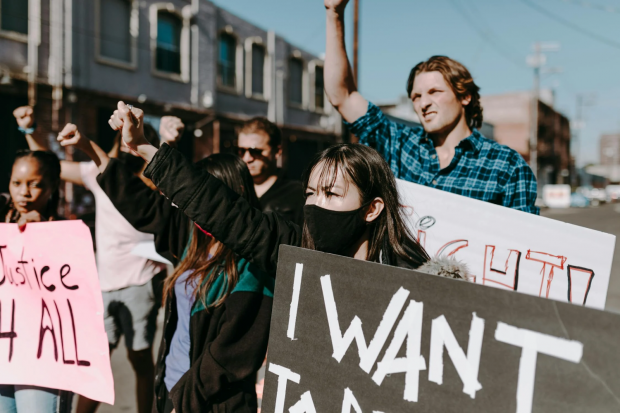In November, Iowa's Board of Regents adopted a broad diversity, equity, and inclusion (DEI) mandate across its public universities, including the University of Iowa, Iowa State University, and the University of Northern Iowa. However, recent legislative developments have stirred controversy and raised concerns about the future of DEI programs in the state's higher education institutions.
The introduction of Senate File 2435 by Iowa lawmakers has ignited a heated debate over the role of DEI programs on college campuses. The bill proposes significant changes, including the restructuring of central DEI offices and a review of all DEI positions at the universities. Additionally, it includes an institutional neutrality requirement that prohibits the promotion of certain contested opinions related to DEI.

(Photo : PEXELS / RDNE Stock Project)
The Controversial Legislation
Iowa lawmakers recently introduced a bill that could drastically alter diversity, equity, and inclusion (DEI) programs at the state's public universities. The bill, Senate File 2435, includes provisions that would ban DEI offices and activities related to race, gender identity, and sexual orientation at these institutions.
The legislation's introduction sparked immediate controversy and criticism. Supporters argue that it promotes neutrality and prevents the promotion of controversial ideas. Critics, however, say that it infringes on free speech and academic freedom, potentially stifling meaningful discussions and initiatives on campus.
READ MORE: Iowa House Republicans Revive Effort To Ban Diversity Programs At Public Universities
Impact on Iowa's Universities
If signed into law, Senate File 2435 would have far-reaching consequences for Iowa's public universities, including the University of Iowa, Iowa State University, and the University of Northern Iowa. The bill would require these institutions to restructure their central DEI offices and eliminate any DEI functions deemed unnecessary for compliance or accreditation. It would also mandate a review of all college, department, or unit-level DEI positions to determine their necessity, with the possibility of adjusting or eliminating positions not deemed essential.
Additionally, the bill includes an institutional neutrality requirement that prohibits universities from promoting certain contested opinions related to DEI, such as unconscious bias, social justice, and racial privilege. Critics argue that this provision could restrict academic freedom and prevent universities from taking a stance on important social issues.
Response and Criticism
The introduction of Senate File 2435 has been met with strong criticism from various groups. Democratic state representative Adam Zabner, whose district includes most of the University of Iowa, expressed concern about the potential chilling effect the bill could have on teachers and professors. He also criticized including DEI provisions in a budget bill, suggesting lawmakers should focus on more pressing issues, such as freezing tuition.
Critics argue that the bill's broad definitions of DEI offices and activities could lead to unintended consequences. Jeremy C. Young, director of the Freedom to Learn program at PEN America, a free expression group, warned that the bill's language could ban any DEI-related program or activity, even those not directly funded by the university.
Supporters of the bill, however, argue that it is necessary to ensure that public universities remain neutral on controversial issues. Tyler Coward, lead counsel for government affairs at the Foundation for Individual Rights and Expression (FIRE), a free speech group, stated that the bill does not restrict students' or faculty members' free speech or academic freedom. He believes the bill's focus on institutional policies and procedures rather than individuals aligns with FIRE's principles.
The debate over Senate File 2435 highlights the ongoing tension between promoting diversity and inclusion on college campuses and protecting free speech and academic freedom. While supporters of the bill argue that it encourages neutrality and prevents the promotion of controversial ideas, critics fear that it could stifle meaningful discussions and initiatives on campus.
As the bill awaits Governor Kim Reynolds' decision, stakeholders on both sides of the debate closely watch the outcome. The impact of the legislation, if signed into law, could have far-reaching consequences for Iowa's public universities and the broader discussion surrounding DEI programs in higher education.
RELATED ARTICLE: Iowa State University Reacts To DEI Recommendations: Pronoun Disclosure Optional Amidst Debate








